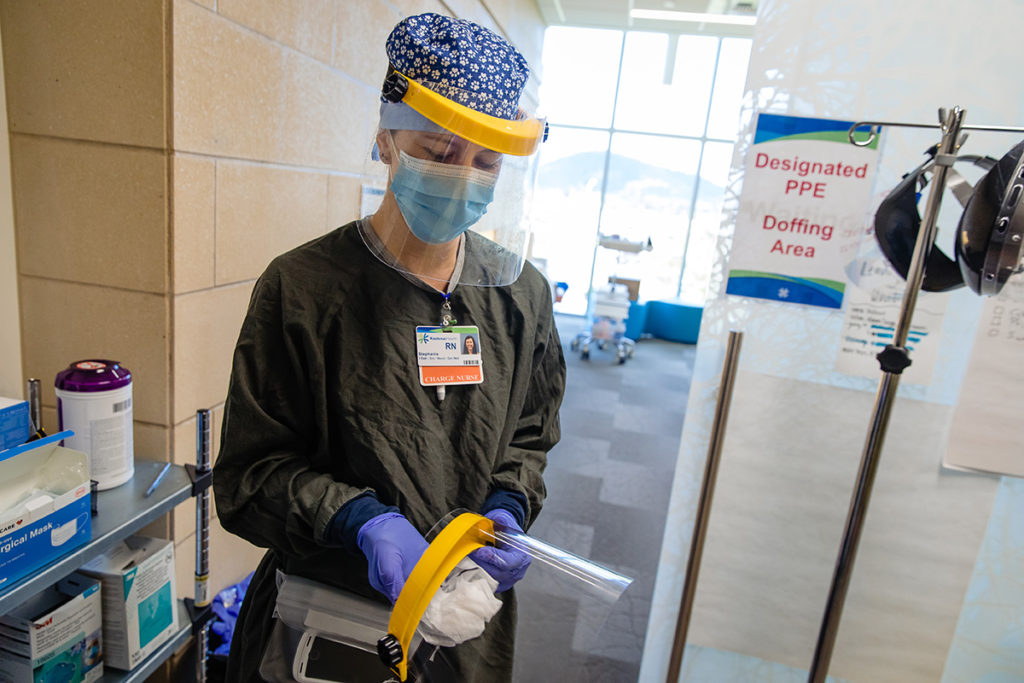
The Inland Northwest is at a critical moment in the COVID-19 pandemic. The actions of our community will determine whether Kootenai Health and other regional hospitals will have the ability to continue providing care for all types of patients in our region.
As of 8 a.m. on October 21, Kootenai Health has 31 COVID-19 inpatients and 11 of these patients require critical care. The overall hospital census for all patients requiring medical or surgical care is 99 percent full. Spokane hospitals are also full and many cannot accept more patients.
Because many regional hospitals are experiencing the same situation, there will be limited opportunities to transfer patients to other facilities once at capacity. As we have been working to accommodate patients, several regional hospitals have either declined to accept transfers due to their own capacity/staffing, or they have been highly selective about which patients they can accommodate. For this reason, we are looking at hospitals beyond our normal transfer area to see what is available.
In addition to being short on patient rooms, Kootenai is also facing a shortage of staff. Because all communities are seeing a dramatic increase in the number of COVID-19 cases and facing challenges similar to ours, it is more difficult to find and recruit nurses, including traveling nurses from other communities.
Of the COVID-19 tests conducted at Kootenai Health, we are seeing the highest rate of positivity since the start of the pandemic.
Our hospitals, health district and emergency responders are relying on our community for support. The best way forward is to keep up with efforts that will flatten the uptick in cases in our region. Each person can help make a difference by doing the following.
- Wear your mask/face covering around people you don’t live with. This is the best way to prevent spreading germs to others.
- Wash your hands often with soap and water for at least 20 seconds. Use an alcohol-based hand sanitizer that contains at least 60 percent alcohol if soap and water are not available.
- Keep your family home when possible and definitely stay home when sick.
- Avoid public areas and do your best to distance yourself at least 6 feet from others.
- Avoid travel. All experts suggest canceling non-emergent travel plans.
- Cover your cough or sneeze with a tissue if you are not masked, then throw the tissue in the trash.
- Clean and disinfect frequently touched objects and surfaces often.
As we enter the eighth month of the COVID-19 pandemic, there is an overwhelming sense of “pandemic fatigue” which has exhausted us all. As we enter cold and flu season we anticipate the usual increase in illnesses and hospitalizations, which will affect already stretched resources.
On behalf of your community hospital, health district, emergency services, and surrounding critical access hospitals, please stay vigilant. Let us all commit to spread out, limit groups, wear a mask, and encourage others to do the same. Each of us plays a role in protecting our friends, family, and co-workers. It takes a collective effort to make a difference. Together we can slow the spread of this disease to help keep it manageable for our health care system and protect those who are most susceptible to complications from COVID-19.
We can get through this together.


